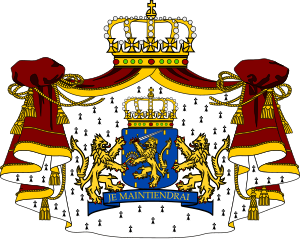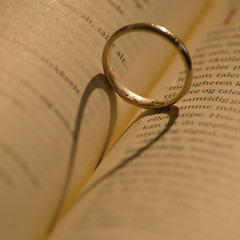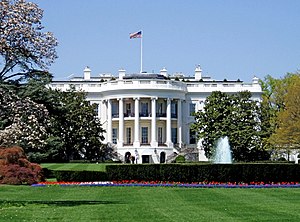 |
| Nigerian parliament |
Source:
Human Rights Watch
The bill before Nigeria's National Assembly to ban "same gender marriage" would threaten all Nigerians' rights, Human Rights Watch, Amnesty International, and the International Gay and Lesbian Human Rights Commission [IGLHRC] said today.
The bill, under consideration for the third time in five years, would expand Nigeria's already draconian punishments for consensual same-sex conduct and set a precedent that would threaten all Nigerians' rights to privacy, equality, free expression, association, and to be free from discrimination, the groups said.
In a
letter to Nigerian President Goodluck Jonathan, leaders of the Senate and House of Representatives, the Nigerian National Human Rights Commission, and other national, regional and international bodies, the groups urged legislators to reject the bill. If passed, the groups appealed to Jonathan to veto it. The first public hearing on the bill was heard yesterday [Oct. 29]. On opening the hearing, the Senate president, Senator David Mark, remarked that same-gender marriage "is offensive to our culture and tradition."
"This is an insidious bill that appears to be limited to same gender marriage, but is actually an attack on basic rights," said Graeme Reid, lesbian, gay, bisexual and transgender (LGBT) rights director at Human Rights Watch. "The definition of 'same gender marriage' is so broad as to include anyone even suspected of being in a same-sex relationship. And it threatens human rights defenders by targeting people who support unpopular causes."
On September 27, 2011, the Senate approved the bill "to prohibit marriage between persons of the same gender" on second reading. The bill defines "same gender marriage" as "the coming together of persons of the same sex with the purpose of leaving together as husband and wife or for other purposes of same sexual relationship." The bill would punish people of the same sex who live together as a couple with up to three years in prison. Anyone who "witnesses, abet[s] and aids" such a relationship could be imprisoned for up to five years.
This is despite the fact that, during the debate of the 2009 Universal Periodic Review of Nigeria [at the UN's Human Rights Council], the government stated that "as citizens, all Nigerians have their fundamental rights guaranteed by the Constitution."
A variation of the bill appeared before the National Assembly in 2006, but never went to a vote. This version was introduced in 2008 and went through two readings, but was quietly dropped in the face of civil society protest in Nigeria supported by an international outcry. It was re-introduced in 2011. If the Senate approves the bill on a third reading, it would have to be approved by the House of Representatives and Jonathan to become law.
Members of the Senate justified the bill by comparing same-sex relationships to incest and describing same-sex conduct as "criminal," "ungodly" and "unnatural," making clear that they see the marriage ban as broadening the deterrent to homosexuality in Nigeria.
Article 214 of the Nigerian
Criminal Code Act already provides up to 14 years in prison for anyone who "has carnal knowledge of any person against the order of nature." As Human Rights Watch documented in a
2008 report, this law is a Victorian-era provision that remained after the end of British colonial rule. Sharia penal codes, introduced in northern Nigeria in 1999, criminalize "sodomy" with death by stoning."
The Bill extends criminal penalties for same-sex consensual behavior, and significantly widens the scope of who can be targeted by the legislation," said Erwin van der Borght of Amnesty International. "The Bill would also target anyone who attends a real or suspected ceremony or gathering, or anyone who 'witnesses, abet[s] and aids' a same-sex relationship."
The proposed law contravenes several provisions of regional and international human rights standards, the groups said. Article 2 of the
African Charter on Human and Peoples' Rights promises everyone equal entitlement to rights and freedoms without distinction of any kind; article 3 of the charter guarantees equality before the law; and article 26 states that:
"Every individual shall have the duty to respect and consider his fellow beings without discrimination and to maintain relations aimed at promoting, safeguarding and reinforcing mutual respect and tolerance."
The United Nations Human Rights Committee, which authoritatively interprets the
International Covenant on Civil and Political Rights (ICCPR) and evaluates states' compliance with its provisions, found in the 1994 case of
Toonen v. Australia that laws criminalizing consensual, adult homosexual conduct violate the covenant's protections for privacy and against discrimination. Nigeria acceded to the covenant without reservations in 1993.
"As Africa's most populous country, and an emerging world leader, Nigeria has a special responsibility to see beyond narrow, personalized values and embrace a world view that is inclusive of the rights of all of its citizens," said Cary Alan Johnson, IGLHRC executive director. "Nigeria is a vast and diverse country. LGBT people are part of that rich tapestry."
In their letter, Human Rights Watch, Amnesty International, and the International Gay and Lesbian Human Rights Commission pointed to grave human rights issues raised by the proposed law:
- The evident intent of the new bill is to extend the already-existing penalties for consensual same-sex conduct.
- Criminalizing individuals for "leaving together as husband and wife" further expands these punishments. They would no longer be limited to sexual acts between people of the same sex, but would potentially include mere cohabitation or any suspected "intimate relationship" between members of the same sex. Far less evidence would be needed for conviction, and prejudice and suspicion would be a basis for arrests. This threatens all Nigerians' right to private life, the groups said.
- The proposed five-year sentence for anyone who "witnesses, abet[s] and aids" a same-sex relationship is greater than the punishment stipulated in the bill for those who enter into a "same gender marriage." This provision could be used to punish anyone who gives any help or advice to a suspected "same gender" couple, for example, anyone who tells them their rights or approves of their relationships. Advocates, civil society organizations, and human rights defenders would be ready targets.
- Under the bill's provisions, anyone - whether Nigerian or foreign - who enters into a "same gender marriage," or simply has a "same gender relationship" in another country and wishes to continue it in Nigeria, could be subject to criminal penalties when they set foot on Nigerian soil. This provides the state with even broader powers to invade people's privacy.
The 2006 version proposed by Nigeria's justice minister sought to criminalize not only same-sex unions but also public advocacy and associations supporting the rights of lesbian and gay people. Sixteen human rights groups from Nigeria, across Africa, and around the world condemned the bill for violating the freedoms of expression, association, and assembly guaranteed by international law, including the
African Charter on Human and Peoples' Rights, and for jeopardizing the fight against the HIV/AIDS epidemic in the country.
Nigeria has the world's third-largest population of people living with AIDS. The proposed bill would further hinder HIV/AIDS education and prevention efforts, the groups said, by driving some groups affected by the epidemic further underground for fear of violence. The 2010 Joint United Nations Programme on HIV/AIDS (UNAIDS) country report on Nigeria recognized that criminalization of vulnerable populations, including men who have sex with men, makes HIV/AIDS prevention and treatment efforts less accessible to them. The 2010 UNAIDS Report on the Global AIDS Epidemic similarly noted that that obstacles to effective HIV prevention in Nigeria were existing "laws, regulations, policies obstructing access to treatment, care and support for vulnerable sub-populations." The proposed bill will only exacerbate this problem, the groups said.
The 2011 UN "Political Declaration on HIV/AIDS" adopted at the UN General Assembly High Level Meeting on AIDS in June noted that "many national HIV prevention strategies inadequately focus on populations that epidemiological evidence shows are at higher risk," including men who have sex with men. The bill flies in the face of the UN declaration, the groups said.
Violence against LGBT people is frequent in Nigeria. In September 2008, several national newspapers published articles criticizing a Christian church in Lagos that ministers to LGBT people. The articles included names, addresses, and photographs of members of the congregation and the church's pastor. Police harassment and threats forced the church to shut down and the pastor to flee the country. Some members of the congregation lost their jobs and homes and had to go into hiding. Several are still under threat of physical harm and harassment."
The LGBT community in Nigeria is already isolated, marginalized and unable to access several of the rights enshrined in the Nigerian constitution," Reid said. "If this bill passes into law, the Nigerian government will be sanctioning even greater discrimination and violence against an already vulnerable group. This bill and its unconstitutional provisions should be laid to rest once and for all."
For more Human Rights Watch reporting on LGBT rights, please visit:
http://www.hrw.org/lgbt








































 Join our page
Join our page

